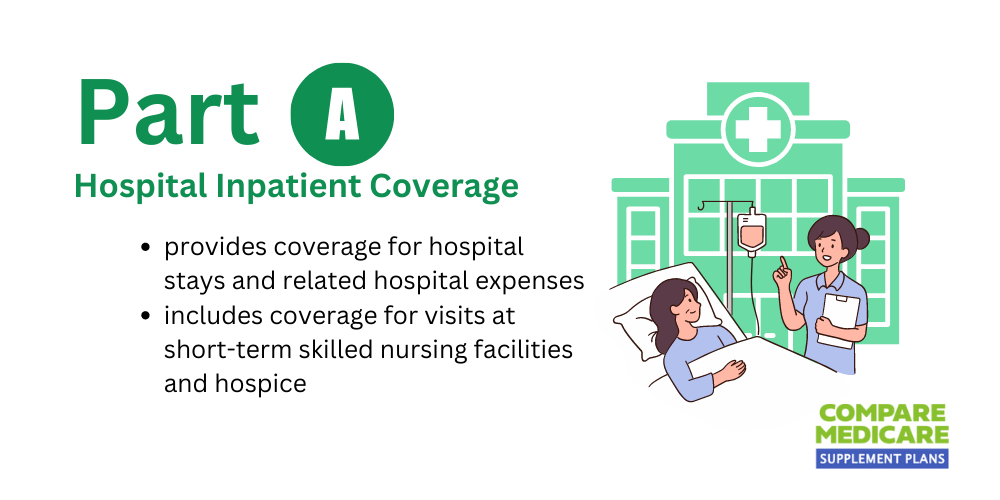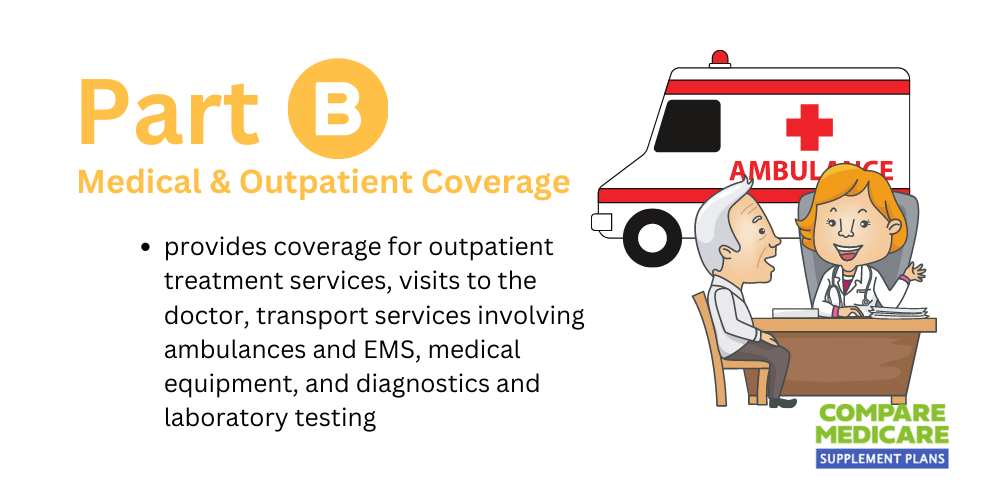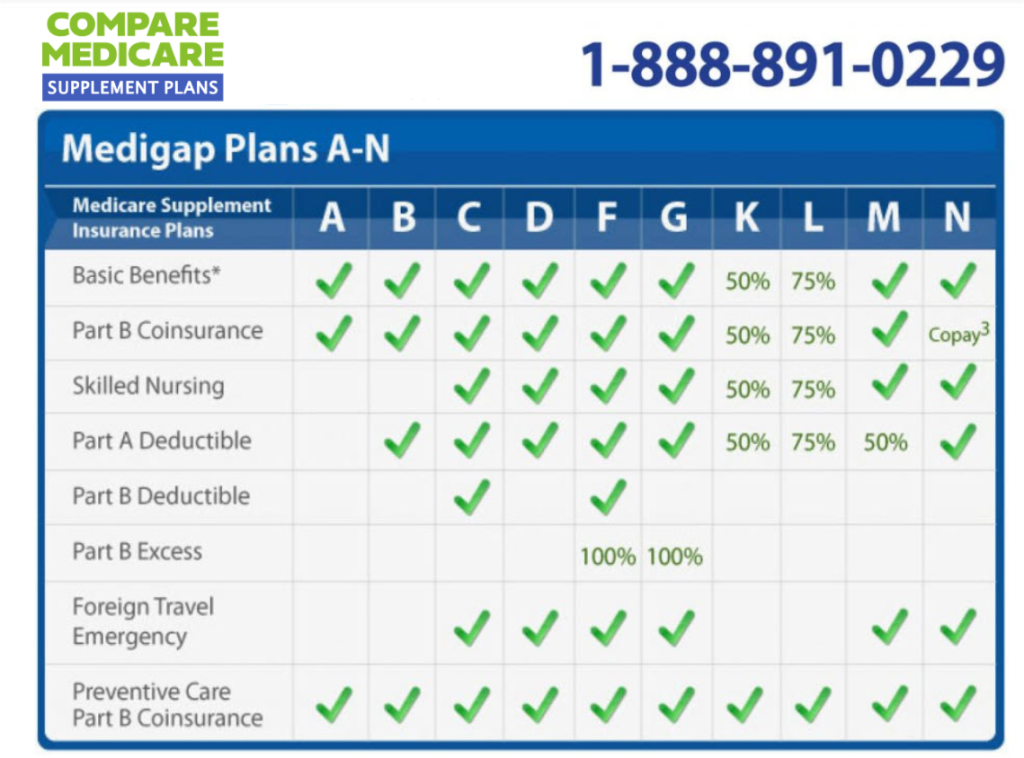Do I Really Need Supplemental Insurance With Medicare?
As we age, our health tends to decline. The older you get, the more prone you are to certain health conditions that require medical care. The cost of that care can be exorbitant. Fortunately, there’s Medicare.
Medicare is a health insurance program that is funded by the United States federal government.
There are several different parts to Medicare, and Part A and Part B are known as Original Medicare.
Part A covers the cost of inpatient care and Part B covers the expenses that are associated with outpatient care and services.
While Original Medicare is certainly helpful, it doesn’t cover all of your medical expenses; it only covers up to 80 percent of your healthcare.

You’ll need to pay for the remaining 20 percent, as well as the products and services that Medicare doesn’t cover.
Medicare Supplement Insurance can help to cover the expenses that Original Medicare doesn’t pay for.
Before you invest in this supplemental insurance, however, you’re probably wondering if you really need it and if the additional expense is worth your while.
Costs Associated with Original Medicare
Like any other insurance policy, Medicare features deductibles, coinsurance, and copays; however, Original Medicare does not cover these expenses.
 For example, Part A of Original Medicare will pay for the care you receive in a hospital for up to 60 days, but you need to cover the cost of the deductible before it kicks in.
For example, Part A of Original Medicare will pay for the care you receive in a hospital for up to 60 days, but you need to cover the cost of the deductible before it kicks in.
In 2023, the cost for the Part A deductible was $1.600.
Keep in mind that if you are hospitalized for longer than 60 days, you will also need to pay a copay, and if you are admitted for 150 days or longer, your Medicare Part A coverage will run out completely.
 The out-of-pocket expenses for Medicare Part B are similar.
The out-of-pocket expenses for Medicare Part B are similar.
You are required to pay for the deductible before Part B will kick in and cover the cost of the outpatient care you receive; in 2023, the Part B deductible was $226.
Once you meet the deductible, Part B will only pay for 80 percent of Medicare-approved services.
As such, you are also responsible for paying the copay and coinsurance for things like:
- doctor visits,
- trips to the emergency room,
- surgeries,
- blood tests,
- and any durable medical equipment you are prescribed.
As if that wasn’t bad enough, unlike with other types of health insurance you’ve probably had, there isn’t a cap on the 20 percent that you are required to pay for outpatient care and services.
With Part B, you’ll have to pay these expenses on an ongoing basis.
How Medicare Supplement Insurance Plans Can Help
Medicare Supplement Insurance plans, also known as Medigap insurance, are designed to cover the gaps Original Medicare coverage.
There are 10 different plans, which are sold by private health insurance companies and are regulated by the federal government.
The 10 plans are named for letters and provide standard benefits.

As such, the same lettered plans are required to cover the same standard benefits, as indicated by the federal government.
This means that no matter where you purchase Plan G and regardless of the insurance company you purchase this plan from, Plan G has to offer the same standard benefits.
Some health insurance companies provide additional perks for policyholders on top of the standard benefits. For example, for some Medigap plans provided by Mutual of Omaha, policyholders may be entitled to receive discounted rates on services and products that Medicare plans don’t cover; vision care, prescription eyeglasses, dental health care, and even discounted rates for gym memberships.
Because Medicare Supplement plans fill in the gaps that Original Medicare doesn’t cover, these policies can really help to make your health care expenses more predictable and more affordable.
Furthermore, knowing that you’ll have coverage for the out-of-pocket expenses that Part A and Part B don’t cover, you’ll have peace of mind.
What are the Most Popular Medicare Supplement Plans?
As mentioned, there are 10 different Medicare Supplement plans, and each plan covers different expenses.
The most popular Medigap policies include Plan F, Plan G, and Plan N. Here’s a rundown of the coverage that each of these policies provide.
Plan F
Plan F is the most comprehensive Medigap policy, as it covers the most out-of-pocket expenses. Coverage includes 100 percent of the following:
- Part A deductible
- Part B deductible
- Part A coinsurance and hospital expenses
- Part A hospice care and coinsurance and copayments
- Part B excess charges
- Coinsurance for skilled nursing facility care
- First three pints of blood for blood transfusions
Plan F also covers 80 percent of the costs that are associated with emergency care that is deemed medically necessary while traveling abroad.
While Plan F is the most comprehensive, new Medicare enrollees can longer purchase it. If, however, you had this plan prior to the start of 2020, you can keep it, and if you became eligible for Medicare before this date but never enrolled, you may still be able to purchase it.
Plan G
Plan G is the most comprehensive policy for new Medicare enrollees.
This policy covers all of the costs that Plan F covers, except for the Part B deductible.
In 2023, the Part B deductible is $226, and the price is expected to be similar in 2024.
Plan N
Plan N features lower monthly premiums, and in exchange, you will need to pay more for copays.
This plan covers all of the benefits that Plan G offers, with the exception of copayments for Part B.
Copays can be as much as $20 per doctor visit and up to $50 per ER visit (waived if you are admitted).
Frequently Asked Questions
What is supplemental insurance in relation to Medicare?
Supplemental insurance, also known as Medigap, is private health insurance that helps cover the costs not included in Original Medicare, such as deductibles, copayments, and coinsurance.
Why should I consider supplemental insurance with Medicare?
Supplemental insurance provides additional coverage beyond what Medicare offers, reducing out-of-pocket expenses and providing financial protection against high medical costs.
Is supplemental insurance mandatory with Medicare?
No, supplemental insurance is not mandatory with Medicare. However, it can be beneficial for individuals who want to minimize their healthcare expenses and have more comprehensive coverage.
What does supplemental insurance typically cover?
Supplemental insurance plans vary, but they often cover expenses like copayments, deductibles, and coinsurance associated with Medicare-covered services. Some plans may also offer additional benefits like coverage for emergency care while traveling abroad.
How does supplemental insurance work with Medicare?
After Medicare pays its share of the covered services, supplemental insurance kicks in to cover the remaining costs according to the specific plan. It helps fill the gaps in coverage left by Original Medicare.
Can I enroll in supplemental insurance at any time?
The best time to enroll in supplemental insurance is during your Medigap Open Enrollment Period, which starts when you turn 65 and are enrolled in Medicare Part B.
During this period, you have guaranteed issue rights, meaning you can’t be denied coverage or charged higher premiums based on your health condition.
What are the benefits of having supplemental insurance?
Supplemental insurance provides peace of mind by reducing or eliminating out-of-pocket expenses.
It can help manage healthcare costs, provide access to a wider network of healthcare providers, and potentially cover services not covered by Original Medicare.
How do I choose the right supplemental insurance plan?
When choosing a supplemental insurance plan, consider factors such as your healthcare needs, budget, and preferred providers. Compare different plans, coverage options, and premiums to find the one that best fits your requirements.
Can I have both supplemental insurance and a Medicare Advantage plan?
No, you cannot have both a Medicare Advantage plan and supplemental insurance (Medigap) at the same time. You must choose between one of these options, as they provide similar but distinct types of coverage.
How much does supplemental insurance with Medicare cost?
The cost of supplemental insurance varies depending on factors such as your age, location, the plan you choose, and the insurance company. Premiums for supplemental insurance plans can range from a few hundred to a few thousand dollars per year.
Do You Really Need Medicare Supplement Insurance?
Before you decide, it’s also important to compare quotes from several insurance companies.
To start comparing estimates from the most credible health insurers, submit the form to the right of the screen or call 1-888-891-0229 now!

Updated December 4th, 2022


